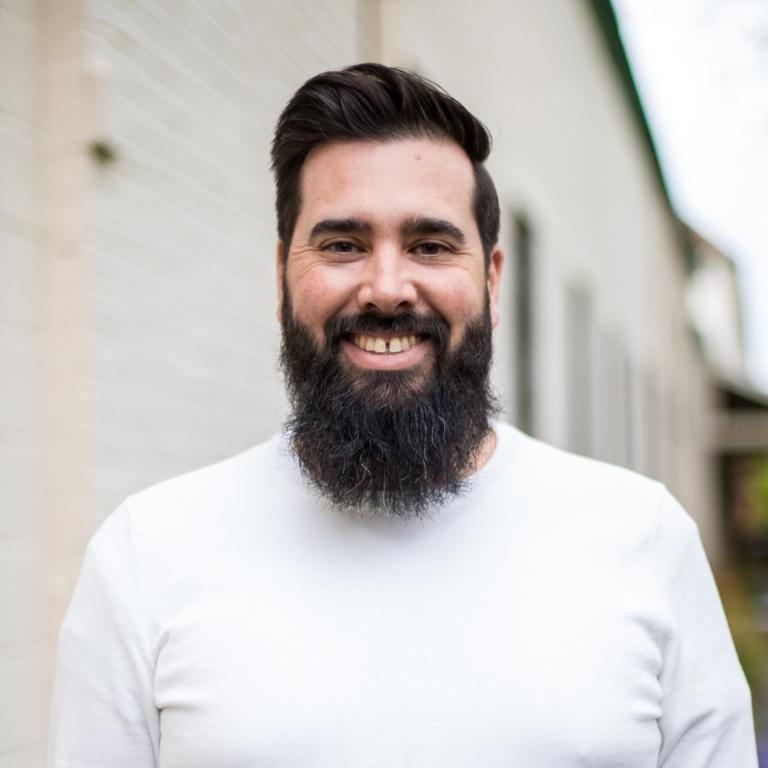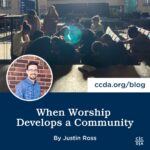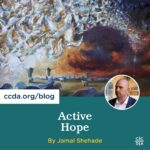An Old Question with a Dangerous New Meaning
Since the Covid-19 pandemic my pastor friends here in Portland, Oregon have been asking an important question: “What is our new vision?” In a place like Portland, this question has a history of leading the church toward collaborative partnerships between churches and other leaders to influence change in our city. But I sense in our current question a dangerous new undertone. It seems we’re trying to find a vision for an “us” that primarily includes our individual churches, not our city or our neighbor. Self-interest is an age-old temptation of the church. The danger of self-interest is that it is a killer of collaboration and imagination.
In Portland, imagination is important. We love being “Portlanders” and we have an idea in our mind of what that means. We imagine ourselves as weird, hip, artsy, progressive in just the right ways, green, and inclusive. The rest of the world watches us on the news and uses these as insults, but we love it here. We have a picture in our minds of thriving here.
However, in the last few years we’re all learning something else about Portland and the people we share this city with. Maybe we don’t all agree. Maybe we don’t have the same vision for this place. Some are leaving for the suburbs. Some are trying to restore the old norms. Many are cynical of what this place is becoming. Amidst this new reality, the church is tempted to pursue the safer road of self-interest. Let’s just focus on us. But this will come at a great cost.
Theological Education in Our City
Miroslav Volf and Matthew Croasmun, in their book For the Life of the World: Theology That Makes a Difference, state, “it is hard for theology to persist when it has forgotten its purpose: to critically discern, articulate, and commend visions of the true life in light of the person, life, and teachings of Jesus Christ.”[1]
At Multnomah Biblical Seminary, we believe that the church must embrace a vision that sees the church and her people as a vital component of the collective imagination of the neighborhood in which she exists. We teach our students that the church can be the one who listens deeply to the lives and hearts of those who’ve walked this land longer than we have and to the voices who’ve lived through gentrification in this neighborhood. The church pays attention to the voices of those who live on the street, in senior facilities, shelters, and group homes, to the displaced ones, the businesswomen, artists, elected officials, the grandpas, and the children.
We believe that the Spirit of God is moving in this city and weaving into the hearts of those who live here a collective desire for flourishing. It’s our privilege to listen long and well to both neighbor and Spirit to discern visions for the flourishing life, and it’s our job to empower our congregants to live that vision out for the world.
Theological education cannot exist to simply create theologically-minded students. Our theology must primarily lead to a deeper lived experience with Christ and neighbor in the cities in which we live. Theological education takes seriously the call to deeply study our God for the purpose of living out who our God is in this world. Missiologist Lesslie Newbigin argues for a similar understanding, saying, “the living God is a God of justice and mercy, and He will be satisfied with nothing less than a people in whom His justice and mercy are alive.”[2] It’s this unity between life and theology that we seek to instill here at Multnomah.
Student Stories of Collective Imagination
Our students have an amazing city in which to practice their developing skills. Students in our Theology for Thriving Communities class and Curious Neighbors class rub shoulders with pastors, non-profit leaders, and community organizers doing work in anti-trafficking and sex industry disruption, church justice initiatives, job training, disability advocacy, and houselessness, among others. After asset mapping their neighborhood and listening to multiple assets in their local community, they create a theology for thriving for the place they live. One student wrote, “I found my calling in this course. I’m still going to be a pastor but I’m also going to start volunteering at the organization that addresses food insecurity in my small town. I want to give my life to work like this.”
Students in our Master of Arts in Global Development and Justice (MAGDJ) program have gone on to become leaders in churches, governments, and organizations. Godfrey “jeje” Nzirimu turned a class project into a non-profit in his hometown in East Africa, “providing access to alternative sources of energy that are environmentally friendly and affordable by building bio-digesters across East Africa to save forests from the growing rates of deforestation and promote economic development.” Kailani West, along with professor Dr. Greg Burch, won the Hatfield Prize from the Center for Public Justice for her academic research in WIC participation for immigrant women and children in Oregon’s Rockwood Community in 2023. Kailani now serves with Urban Impact in Seattle as a Resident Service Coordinator.
An Old Question with an Exciting Future
This post ends where it started. With a question: What is our vision?
First, let us rid ourselves of the dangerous undertone of self-interest and instead look toward Jesus and remember that his teachings lead us to lay down self-interest and embrace love of neighbor. I believe Jesus always intended for his church to be central to the arrival of his flourishing for this world! He gave us a vision that includes the church yet extends beyond her interests.
Here at Multnomah, in the heart of Portland, I find it’s easier and easier to hold this conviction because I see our students continue to live into it. The church can be a source of hope and a catalyst for positive change. Our students are showing me that! They are listening to the dreams, needs, and aspirations of their neighbors so that the vision is not imposed from the outside but rather emerges from a dialogue between the church and the community. Our students are our next leaders, and I’m so grateful they are the ones who will be asking, “What is our vision?”
Invitation to Portland
I’m beyond excited that CCDA’s National Conference is coming to our city this year. For all the mess that Portland sometimes is, it’s also immensely beautiful. Pursuing Kingdom work here keeps you on your toes, it makes you sharper, and it makes you more honest. I can’t wait for you to visit and discover how God is working in our city in 2024!
About Ruben Alvarado

Ruben has 19 years of experience in pastoral ministry in both rural and urban environments, ten of which have been spent in Portland at the intersection of Community Development and Pastoral Ministry. Disability advocacy is one of his passions. Ruben oversees the DMin Program at Multnomah Biblical Seminary and teaches community development to students in the MDiv program. He serves on the lead team for ServePDX, an initiative that gathers church leaders around justice work in Portland.
[1] Miroslav Volf, For the Life of the World: Theology That Makes a Difference (Grand Rapids, MI: Brazos Press, 2019)
[2] Lesslie Newbiggin, The Gospel in a Pluralist Society (Grand Rapids, MI: Eerdmans, 1989).




